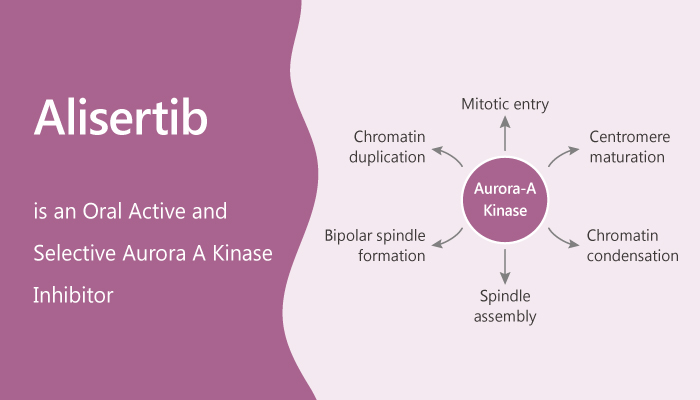As we all know, Alisertib (MLN8237) is an orally available selective aurora A kinase inhibitor. Aurora kinases are essential mediators in cell mitosis. Amplification of these kinases can lead to the development of malignancy and may be associated with inferior survival.
Alisertib is an oral aurora kinase inhibitor which has been shown to induce cell-cycle arrest and apoptosis.

A few studies have verified the efficacy of this compound both in vitro and in vivo.
Firstly, Alisertib exhibited potent activity against Aurora-A kinase (IC50 = 1nM) in both enzyme and cell-based assays. Additionally, Alisertib shows 200-fold more selective activity against Aurora-A than related kinase Aurora-B.
Subsequently, Alisertib inhibited proliferation of MM cells and overcame the protective effect of the BM environment on MM cells in vitro. Moreover, Alisertib induced G2/M arrest, apoptosis, and senescence in MM cells in vitro.
In vivo, Alisertib (Alisertib, 30 mg/kg, p.o.) significantly reduces tumor burden and increases overall survival in xenograft-murine model of human-MM. Alisertib (20, 30 mg/kg, p.o.) causes tumor growth inhibition in solid tumor xenograft models and regressions in in vivo models of lymphoma, and reduces FLT uptake in HCT-116 xenograft tumors.
Furthermore, this compound has come into clinical trials carried on patients with hematologic malignancies and solid tumors. However, the clinical trials have had obstacles that the clinical efficacy is not satisfied.
More clinical trials are need to be further verified.